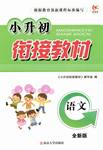题目内容
Success is often measured by the ability to overcome adversity(逆境). But it is often the belief of others that gives us the courage to try.
J. K. Rowling, author of the Harry Potter book series, began writing at age 6. In her biography(传记), she remembers with great fondness when her good friend-Sean became the first person to encourage her and help her build the confidence that one day she would be a very good writer.
“He was the first person with whom I really discussed my serious ambition(志向) to be a writer. He was also the only person who thought I was bound to(注定)be a success at it, which meant much more to me than I ever told him at the time.”
Though there were many difficulties, Rowling continued her writing, particularly fantasy stories. But it wasn’t until l990 that she first came up with the idea about Harry Potter. As she recalls(回忆), it was on a long train journey from London to Manchester that “the idea of Harry Potter simply fell into my head. To my great disappointment, I didn’t have a pen with me, and I was too shy to ask anybody if I could borrow one. I think, now, that this was probably a good thing, because I simply sat and thought, for four (delayed train) hours, and all the details came up in my brain, and this thin, black-haired, bespectacled(戴眼镜的)boy who didn't know he was a wizard became more and more real to me.”
That same year, her mother died after a ten-year fight with serious diseases, which deeply affected her writing. She went on to marry and had a daughter, but separated from her husband shortly afterwards.
During this time, Rowling was diagnosed with depression(诊断患有抑郁症). Unemployed, she finished her first novel in area cafes, where she could get her daughter to fall asleep. After being refused by l2 publishing houses, the first Harry Potter novel was sold to a small British publishing house.
Now with seven books that have sold nearly 400 million copies in 64 languages, J. K. Rowling is the highest earning novelist in history. And it all began with her friend’s encouragement as well as her ambition to write.
1. Who believed J. K. Rowling was to be a good writer?
A.Her friend Sean. B.Her mother.
C.Her daughter. D.Her husband.
2.Rowling first came up with the idea about Harry Potter________.
A.at the age of 6 B.on a train journey
C.after her mother’s death D.in her secondary school
3.She felt disappointed on the train because_________.
A.her train was delayed for four hours
B.she didn’t have a pen with her
C.her mind suddenly went blank
D.no one would offer her help
4.It can be concluded from Paragraph 5 and 6 that Rowling is_________.
A.open-minded B.warm-hearted
C.good-natured D.strong-willed
5.The text mainly tells us_________.
A.adversity makes a good novelist
B.the courage to try is a special ability
C.you can have a wonderful idea everywhere
D.encouragement helps one succeed
 学而优衔接教材南京大学出版社系列答案
学而优衔接教材南京大学出版社系列答案
